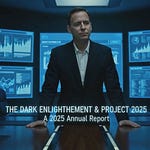President John F. Kennedy often spoke about the principles of an open society and the importance of transparency, accountability, and freedom. One of his most notable quotes related to the concept of an open society comes from his address before the American Newspaper Publishers Association on April 27, 1961, where he emphasized the delicate balance between openness and national security:
"The very word 'secrecy' is repugnant in a free and open society; and we are as a people inherently and historically opposed to secret societies, to secret oaths, and to secret proceedings."
Kennedy’s remarks highlighted several key principles relevant to an open society:
Transparency in Governance:
He emphasized the importance of freedom of the press and an informed citizenry to hold power accountable, which is foundational to an open society.
Balance Between Freedom and Security:
While Kennedy acknowledged the need for certain measures to protect national security during the Cold War, he also warned against using secrecy as a tool to undermine the freedoms and openness essential to democracy.
The Role of an Informed Public:
He advocated for the public's role in questioning and challenging authority as a way to preserve freedom and prevent the concentration of unchecked power.
Relevance Today
Kennedy’s words resonate strongly in today’s era of misinformation, propaganda, and challenges to democratic norms. An open society requires transparency, free exchange of ideas, and vigilance against both external and internal threats to freedom. His speech underscores the importance of maintaining these principles even in times of crisis.










